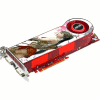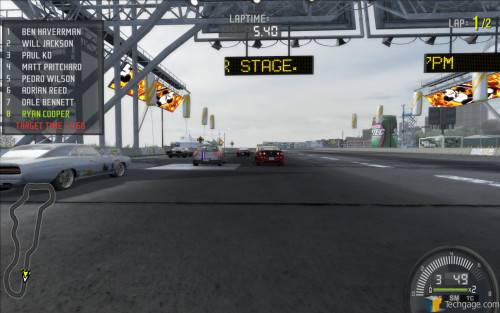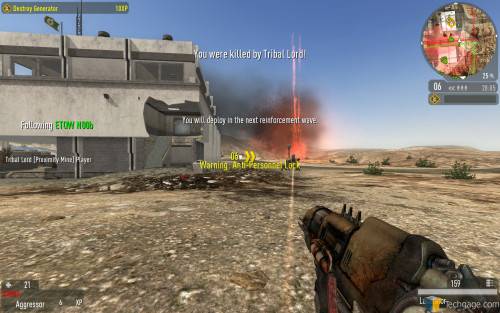- Qualcomm Launches Snapdragon 4 Gen 2 Mobile Platform
- AMD Launches Ryzen PRO 7000 Series Mobile & Desktop Platform
- Intel Launches Sleek Single-Slot Arc Pro A60 Workstation Graphics Card
- NVIDIA Announces Latest Ada Lovelace Additions: GeForce RTX 4060 Ti & RTX 4060
- Maxon Redshift With AMD Radeon GPU Rendering Support Now Available
ASUS EAH3870 X2 1GB

Does a multi-GPU setup with one card interest you? You may want to take a look at AMD’s latest high-end offering, the HD 3870 X2. We are taking a look at ASUS’ version of the card which features a fantastic bundle, including an HDMI adapter and Company of Heroes: Opposing Fronts.
Page 6 – Need for Speed: Pro Street, Enemy Territory: Quake Wars
Each graph for our benchmarking results are labeled with the resolution that the game was played at, while omitting secondary settings such as Anti-Aliasing, Anisotropic Filtering, texture quality, et cetera. To view all specific settings that we used, please refer to our testing methodology page, where we have screenshots for each game.
Need for Speed: Pro Street
Electronic Arts is one of the largest game publishers in the world, and because of that, they have plenty of fans and plenty of enemies. Even if you don’t like them, it’s hard to dispute the fact that many of their games are solid, one being anything from the Need for Speed series.
“Pro Street” received rather poor reviews upon launch, and for mostly good reason. It removes the freedom of being able to explore a city at your leisure, which to many, is a huge step backwards. But despite that fact, it’s still a great game if you enjoy the series and want an offering that’s a little more realistic than previous versions (in terms of money and damage).
Our run through consists of racing through two laps at the Chicago Airfield, something that takes about three and a half minutes to accomplish from the moment we begin recording frames. The beginning of each race shows an automated camera fly-by over the cars in the race – we begin recording our FPS as soon as this clip begins.
Settings: Our lowest resolution uses fully default settings, while the 1920 resolution ups the AA to 4x and enables Anisotropic texture filtering.


It looks like NFS has been dipping into the Crysis cup, delivering very poor performance at our top setting. Like Crysis, however, hopefully ATI will correct this issue with a future driver update.
Enemy Territory: Quake Wars
The last game we will be using in our benchmarks is ET: Quake Wars. This is also the only game in our testing that’s executed as a time demo, as opposed to the manual play through like the rest of our games. The reason for this is twofold.
The first reason is that we like to include at least one time demo, despite it’s CPU-boundedness, in order to see how our cards scale when run in such a situation. The second is the fact that this game caps its FPS at 60, except during time demos.
Our time demo takes place in the Area 22 level, with the main goal to destroy the jamming generator. The actual play through took around five minutes, but the time demo goes far quicker, as is the case with most time demos.
Settings: Maxed settings are used here for the most part. Our 1680 resolution uses 2x AA while 1920 and 2560 use 4x.



Results like these are becoming a common theme. The 3870 X2 performed like a regular card with our lowest resolution but clearly proved it’s more powerful at 1920×1200 and 2560×1600.
Support our efforts! With ad revenue at an all-time low for written websites, we're relying more than ever on reader support to help us continue putting so much effort into this type of content. You can support us by becoming a Patron, or by using our Amazon shopping affiliate links listed through our articles. Thanks for your support!







